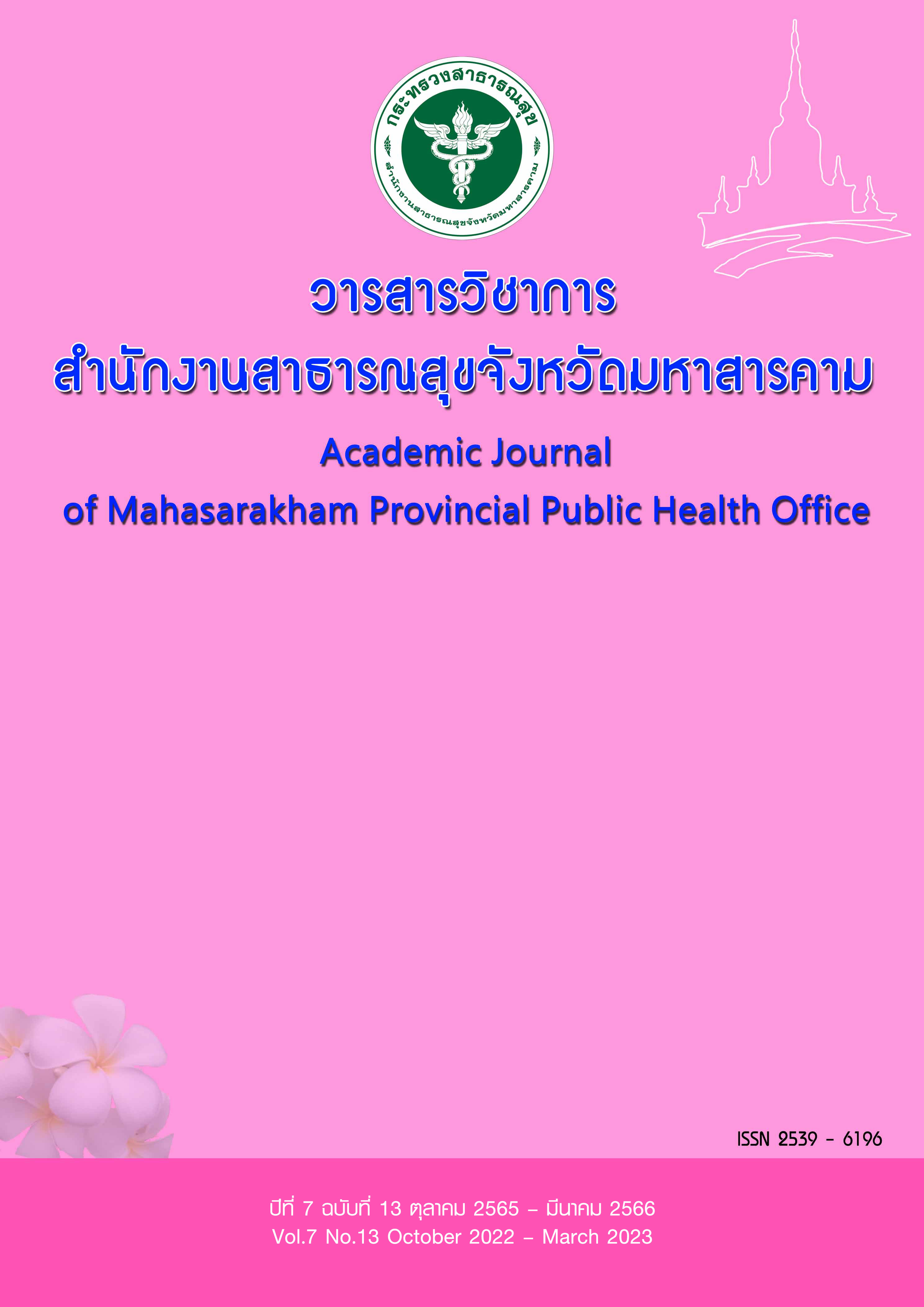Incidence of Acneiform Eruption in Advanced Non-Small Cell Lung Cancer Treated with Erlotinib
Abstract
Abstract
Background : Erlotinib, The Epidermal Growth Factor Receptor Inhibitor (EGFRIs), has been listed on the national list of essential medicines (NLEM) Category E (2) for EGFR mutation-positive metastatic non-small cell lung cancer (EGFRm+mNSCLC). Acneiform eruption is a common side effect in dermatologic conditions. The review of incidence and severity of acneiform eruption could be improved to design health services for the most efficacy and cost-effectiveness.
Objectives : This study aims to investigate the incidence of erlotinib-related acneiform eruption among EGFR mutation-positive metastatic non-small cell lung cancer in Chaoprayayomarat hospital.
Method : A retrospective cross-sectional study was conducted in Chaoprayayomarat hospital from October 2018 to September 2022. All out-patient medical records of a patient with EGFRm+mNSCLC who received erlotinib were retrieved and analyzed.
Result : In all 68 patients (41 females, 27 males), range of age between 30 - 85 years (63 ± 11.3) were diagnosed with EGFRm+mNSCLC. Incidence of the acneiform eruption occurred in 44 patients (64.7%). The severity of acneiform eruption was stratified to grade 1 22 patients (50.0%), grade 2 18 patients (64.7%), grade 3 3 patients (6.8%), and grade 4 one patient (2.3%). Another cutaneous adverse drug reaction was xerosis and itching skin (15 patients, 22.2%) and dry eyes (7 patients, 10.3%). Various treatments based on the severity of acneiform eruption were observed. The severity grade 2 was treated with topical drug occurred in 18 patients (40.9%). The severity grade 3 was prescribed oral antibiotic for 3 cases (6.8%). The duration of treatment about 4 – 12 weeks was recorded. However, one patient who had severity grade 4 was admitted to the internal medicine ward and a Methicillin-Susceptible Staphylococcus aureus (MSSA) bloodstream infection was diagnosed. Erlotinib dose reduction was observed in this case who suffered from a severe acneiform eruption. This incidence was comparable to other clinical trials. These results provide useful information for tailoring upcoming treatment strategies to share knowledge, adverse drug reactions, skin care, increase the quality of life, and desired economic outcomes among EGFRIs user.
Keywords : acneiform eruption, epidermal growth factor inhibitor, erlotinib, non-small cell lung cancer


